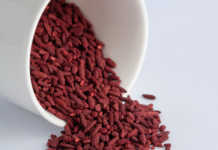
HEART ATTACKS DON’T ALWAYS LOOK THE SAME – ESPECIALLY FOR MEN AND WOMEN. HERE’S HOW TO RECOGNIZE THE SIGNS BEFORE IT’S TOO LATE.
BY KERRIE LEE BROWN
My Story…
It all started on Christmas morning in 2012. I felt a heavy tightness across my chest that I had never felt before. It felt like someone was tightening a belt around my breasts and holding on for dear life. The feeling lasted for two weeks and even though it was foreign, I shrugged it off as holiday stress.
A few weeks later, upon my family’s return from Florida, I started having heart-racing episodes three or four times a week, along with shortness of breath. At the same time, I was starting to get headaches more often than usual. Then, one morning at work, I had a panic attack standing in line at my office cafeteria.
The next night, as I was putting my kids to bed, I had the most horrific feeling. I got a sharp pain in my right shoulder that shot all the way down my arm. It felt as though someone hit me hard with a baseball bat. Then pain started to trickle down and around my back. I ran downstairs to where my husband was standing in the kitchen. My arm started to go limp.
Panic-stricken, he asked if he should call an ambulance. I screamed “No!” After all, the pain was in my right arm, how serious could it be? I was then hit with an overwhelming feeling of exhaustion. Even though it was just 8:00 p.m. if I stood any longer I would have fallen on the floor.
I went to bed even though I couldn’t lie on my back because of the shooting pains. At 2:00 a.m. I got up to search the Internet for my symptoms. I was still feeling dizzy.
In the morning I felt a bit better, however I had a nagging pressure under my arm and on the right side of my chest. Despite this I went to work.
The next few days the pain started to fade. The shortness of breath and palpitations still came in waves though. I finally went to see the doctor and she sent me for an ecocardio exam (stress test), as well as an electrocardiogram (ECG) and blood work. She also put me on blood thinners. A week later I got the result that my eco test was positive. I had had a heart attack. I was 39 years old.
It wasn’t until I wore a Mobile Cardiac Arrhythmia Diagnostic System (loop monitor) for two weeks that I found out I have a congenial heart condition, called Paroxysmal Supraventricular Tachycardia (PSVT). This explained the sudden rapid heartbeats that were causing my shortness in breath, and the reason my heart jumped up to 170 bpm in a matter of seconds. My heart sporadically shifts into overdrive without warning, and it feels like I’m running a marathon.
Congenial heart conditions can increase your risk of having a heart attack. Since PSVT results in a significant increase in heart rate beyond what the heart is designed to do, frequent and prolonged attacks can cause damage to the heart muscle, similar to what a heart attack would cause. In a typical heart attack, there isn’t enough blood flow to the heart (supply) due to blockage of the arteries. In the PSVT scenario, there is excess demand due to the rapid heart rate, and the body can’t supply enough blood flow to meet it. Depending on the amount of damage, this could lead to poor functioning of the heart and heart failure.
COULD YOU BE AT RISK?
While we hear a lot about men and heart attacks, research shows that woman actually have a higher risk of dying following a cardiovascular event. Women are also less likely to be treated by a specialist, are less likely to be transferred to another facility for treatment, and are less likely to undergo cardiac catheterization or revascularization.
This doesn’t mean that men are out of the red zone. According to the Centers of Disease Control and Prevention, between 70 to 89 percent of sudden cardiac events occur in men – with half of the men who die suddenly of coronary heart disease experiencing no previous symptoms.
Experts say that high blood pressure, high LDL cholesterol, and smoking are key risk factors for heart disease. Several other medical conditions and lifestyle choices can also put people at a higher risk for heart disease, including: diabetes, stress, obesity, poor diet, lack of exercise, or excessive alcohol use.
WHY HEART ATTACKS HAPPEN
Your heart is an important muscle. It gets its energy from your blood, which carries oxygen and nutrients. When there is a lack of blood supply problems can arise.
Most people think of heart disease as one condition. In fact, heart disease is a group of conditions affecting the structure and functions of the heart and has many root causes.
For instance, coronary artery disease develops when a combination of fatty materials, calcium and scar tissue (called plaque) builds up in the arteries that supply blood to your heart (coronary arteries). The plaque buildup narrows the arteries and prevents the heart from getting enough blood.
SYMPTOMS OF A HEART ATTACK
“Men tend to experience the classic symptoms we associate with heart attacks: crushing chest pain often described as an elephant sitting on the chest that often radiates down the left arm,” says Dr. Melissa Hershberg, a Toronto-based doctor. “Other symptoms can be associated with the pain such as nausea, fatigue, heart palpitations and shortness of breath.” In some cases they feel an uneasy discomfort or pressure rather than pain.
Chest pain or discomfort can come on fast or slow – and can last from a few minutes up to a few hours. In a study published in the American Journal of Critical Care, men generally reported more severe chest pain than women. They were also more likely to say their symptoms were brought on by exertion. However, another study found that 10 percent of men experienced no chest pain at all. In fact, experts say diabetics can have heart attacks without feeling pain.
Women tend to experience less intense symptoms and the presentation often varies. “For instance, women can present with overwhelming fatigue or nausea, shortness of breath or dizziness – or chest pain that can be anywhere from central, left-sided, right-sided or even abdominal,” says Hershberg. “Sometimes no chest pain is present.” The pain can be in one or both arms, neck, jaw, back or stomach. These types of pain are often dismissed as indigestion, heartburn or even a pulled muscle
Why the difference in the sexes? Studies confirm that heart disease in women can differ from men in that it doesn’t often involve an obvious blockage in one of the big arteries. Instead, plaque develops throughout the smaller arteries to the heart, cutting off blood flow more slowly resulting in more subtle symptoms.
WHY SECONDS MATTER
I am incredibly lucky that I’m okay even though I took weeks to respond to my heart attack. Looking back it was foolish to ignore the signs but I never dreamed that I could be having a heart attack.
About half of all sudden cardiac deaths happen outside a hospital, meaning that a lot of people don’t act on early warning signs. A study in the Journal of Cardiovascular Nursing found that most men wait six hours before calling 911 when experiencing heart attack symptoms – this is often too late.
Hershberg says that the faster you get to the hospital the better. Once you’re there, doctors can begin treatments like clot-dissolving drugs or angioplasty in order to restore blood flow to the heart muscle and limit damage. “If you get to the hospital in a few minutes rather than a few hours, you are more likely to have a better outcome with less complications – and you are less likely to die,” says Hershberg.
IS STRESS A FACTOR?
Although it is difficult to diagnose stress as the sole cause of heart attacks – it is thought to be one of the major contributing factors to many health problems.
When stressed, the heart changes how it uses fuel for energy. This can play a major role in the development of heart disease. For women, when their heart is stressed it becomes much less efficient at metabolizing fat. However, when a male heart is stressed, it starts using more sugar as fuel. These changes in the heart can also affect how fat is stored and used in other parts of the body.
My Story: Over a Year Later
As an active career-loving woman, wife and mom, it was extremely hard for me to admit that I needed to slow down and take care of myself. After my heart attack, my perspective on health has changed.
Although I always considered myself a healthy person, I’m eating better, drinking more water, and have switched to decaf coffee. I’ve also started to see a naturopathic doctor and cardiologist regularly, combining traditional and non-traditional medicines such as herbal remedies and beta-blockers. I go to regular reflexology and massage appointments.
I’ve also found out a lot more about my condition. For instance, in PSVT, there is a short circuit that bypasses this desired pathway and enables the heart to beat excessively fast. To treat this, cardiologists are able to locate and remove this alternate pathway and prevent this bypass from occurring. As a result, I am considering a Radiofrequency Ablation procedure that should eliminate the problem altogether.
Today I feel rejuvenated physically and mentally. And I also know that it’s important to always listen to your body – no matter how healthy you think you are.
TRY: Strauss Heart Drops
Help naturally reduce the risk factors of cardiovascular disease with these all-natural drops. The combination of garlic, Crataegus, cayenne, motherwort, mistletoe, white willow and Bilbemy work in tandem to help clear clogged arteries and keep your heart in top working order. (Available at myVIVAstore.com for $69.99 vs. $89.99 regular price.)











